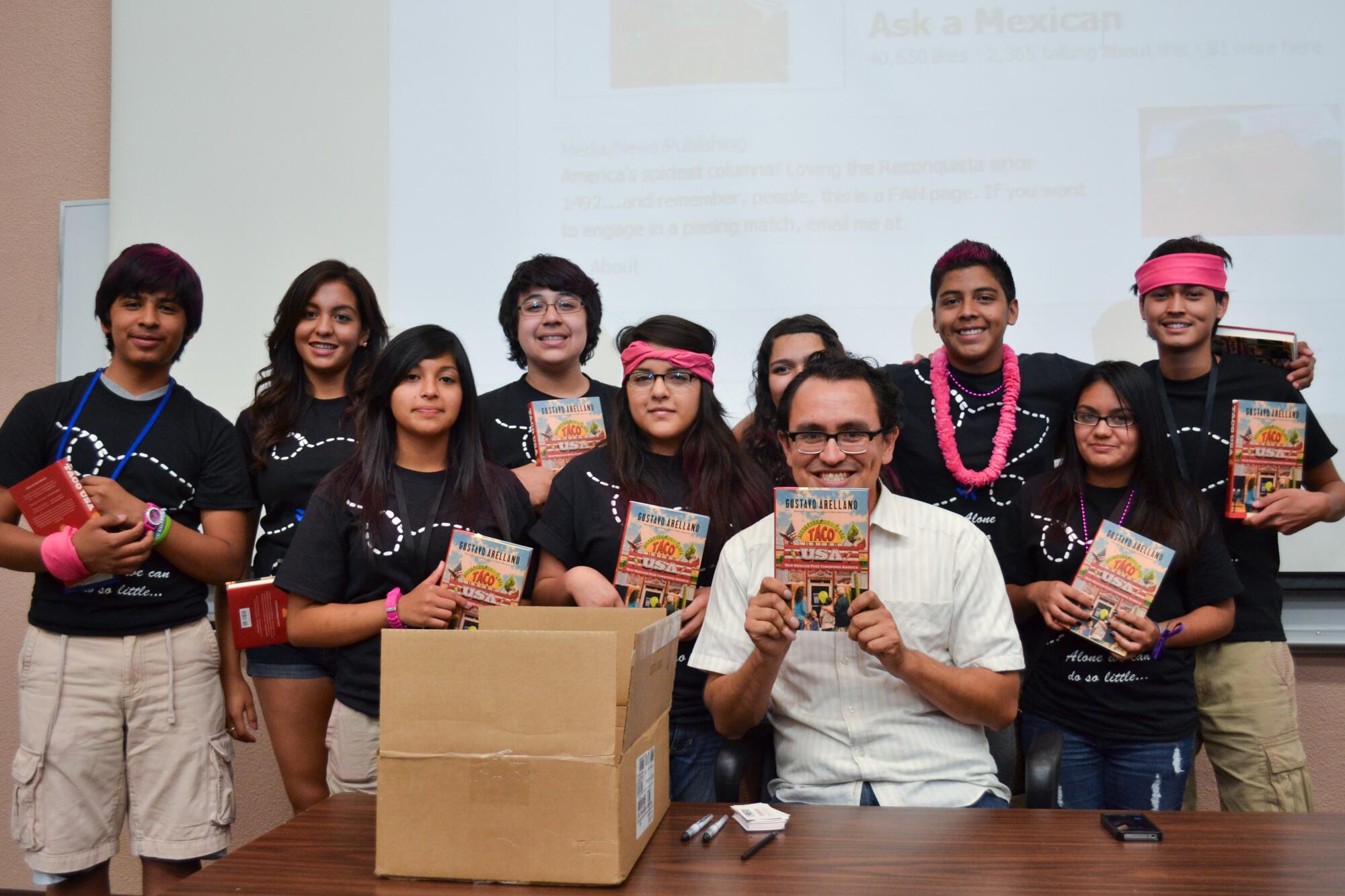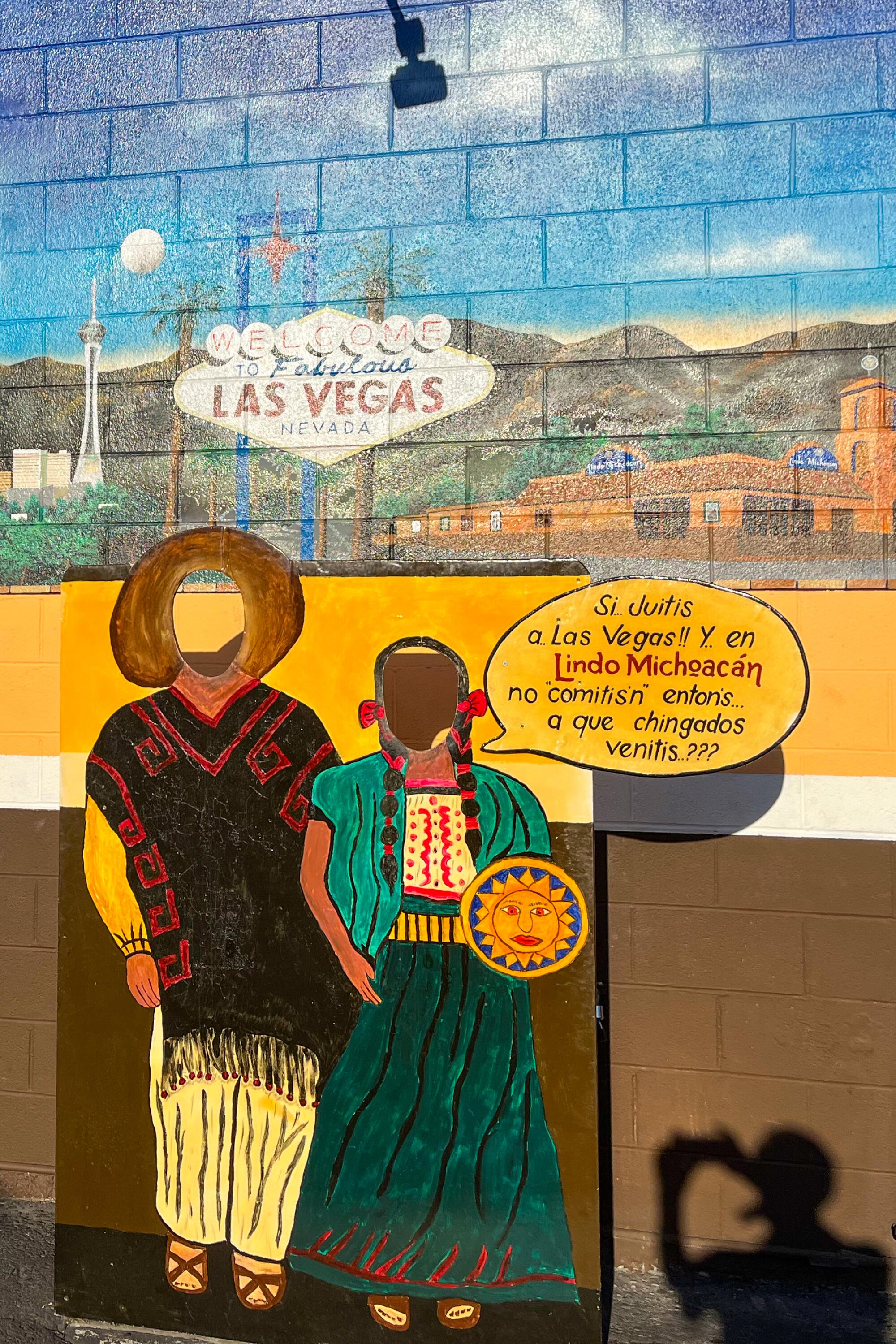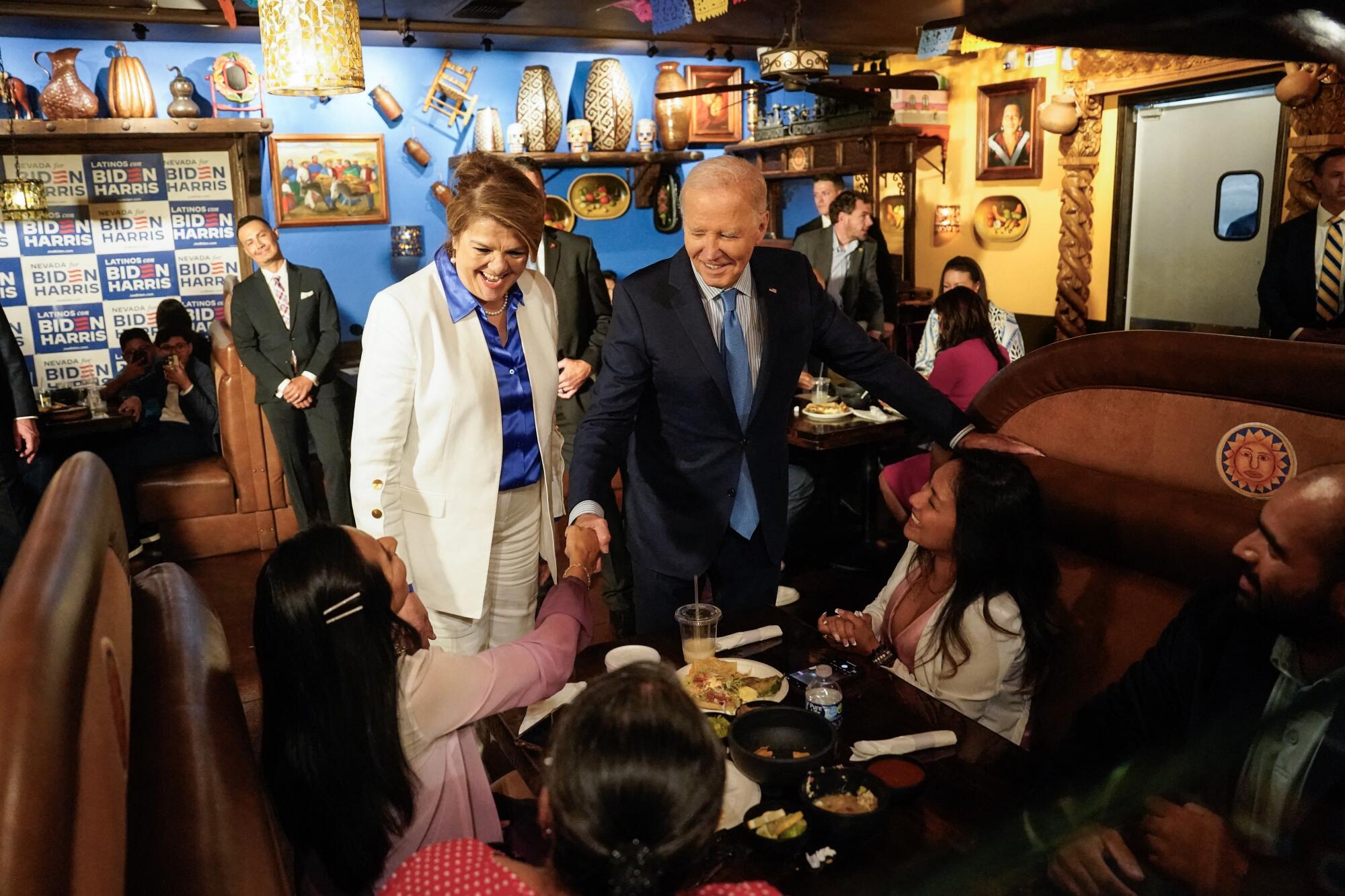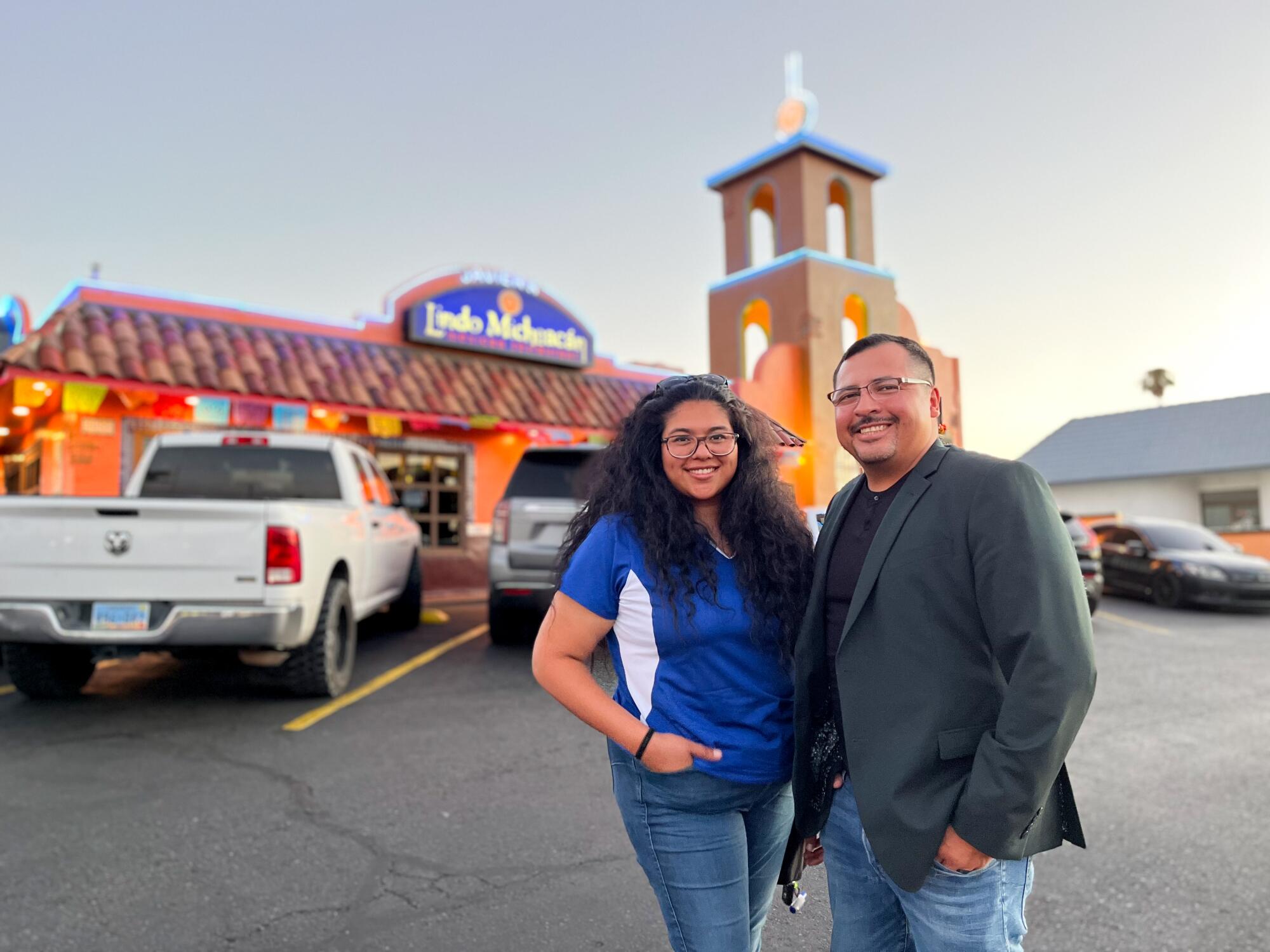In 2007, I visited Las Vegas at the invitation of a college student, Edgar Flores.
He was a volunteer for the Latino Youth Leadership Conference, an annual weeklong retreat at the University of Nevada, Las Vegas, where he was an English major.
About 100 high school students gathered to learn leadership skills and build a sense of identity in a state where Latinos were, at the time, largely powerless.
In a small auditorium, I told the youngsters to know their history, to take pride in being Latino and to never forget to mentor others. My speech must have resonated, because I got invited back every couple of years.
Each time I returned, Flores had moved on up: Grad student. Law school. Passing the bar exam. His own practice. A state Assembly member. Now 38, he is a Democratic state senator.
In the 15-plus years since I first spoke there, the Latino Youth Leadership Conference has transformed into an incubator. Council members, state legislators and even a member of Congress are alums. Business owners. Teachers, NASA engineers. Republicans, Democrats and everyone in between.
I’ve been lucky to speak at similar youth conferences across the Southwest, which have been happening since the 1930s. They have profoundly influenced Latino life yet have gotten next to no mainstream media coverage.

The Times’ Gustavo Arellano in 2012 with students at the weeklong Latino Youth Leadership Conference, which originally aimed to get more Latinos in college and reduce the high school dropout rate.
(Courtesy of Edgar Flores)
On a road trip to talk to Latinos about their hopes and fears in this presidential election season, a visit with Flores was a must.
Plus, he knows where the good food is in Vegas.
“Every time I go to the conference, I always tell them, ‘Look to your left. Look to your right. You’re looking at the next CEO, you’re looking at elected officials, you’re looking at presidents, you’re looking at business owners. If you accept that, you’re going to take this opportunity 10 times further,’” he said.
“You’re just itching to do something for your communities,” said Irene Cepeda, 35, a Nevada State University project director and former Clark County Board of Education trustee. She’s a conference alum and heads its nonprofit arm. “And so you go out and do something, and then realize you can inspire others as well to do so.”
We were enjoying dinner at Lindo Michoacán, which President Biden visited this year. It was Night 1 of the Democratic National Convention, and the large restaurant was packed. The televisions were tuned to Mexican soccer matches. Our table never looked at our phones to see what was going on at the convention, or even mentioned it.
But I turned the conversation to politics, asking Cepeda — a Democrat who lost her school board seat in 2022 to a progressive challenger — why she wasn’t planning to run for office again.
Every time I go to the conference, I always tell them, ‘Look to your left. Look to your right. You’re looking at the next CEO, you’re looking at elected officials, you’re looking at presidents, you’re looking at business owners.’
— Edgar Flores
“It was a hard position to be in,” she responded. Budget cuts. The COVID-19 pandemic. Anti-vaxxers. “That led to a divided board, ideologically,” she said.
“Irene took a lot of backlash from friends and people in the community because of her style,” Flores added. “She’s always been, ‘I want everyone’s input. I want everyone to be at the table.’ That’s why I think she was so ideal for something like the LYLC. Because it’s all about inclusivity.”
Our meals arrived — al pastor tacos for me, mole for Flores, a ceviche tostada for Cepeda.

A painting outside Lindo Michoacán restaurant in Las Vegas.
(Gustavo Arellano / Los Angeles Times)
The two credit the Latino Youth Leadership Conference for changing their lives. Nevada’s Latin Chamber of Commerce started it three decades ago to get more Latinos in college and decrease the high school dropout rate. At the time, Latinos accounted for 10% of the state’s population, according to census figures. Today, they stand at nearly 29%.
Students are grouped into familias, which adopt their own slogans and chants. Friendships are formed for life, and alums cheer one another on through life’s triumphs and tragedies.
“Every time I had been exposed to anything that I considered power, money or whatever, it was always somebody coming in and into your world and telling you, ‘This is how you’re supposed to do it,’” said Flores, who attended in 2004. “It’s the first time I had ever gone to a conference where leadership had more to do with you, and you confronting yourself, than it had to do with anybody else.”
Cepeda, who was born in Inglewood to Nicaraguan parents and participated a year after Flores, said, “I had never been exposed to a conversation about leadership where it was all about you, like facing your own demons, confronting your own problems, acknowledging your privileges.”
I had never been exposed to a conversation about leadership where it was all about you, like facing your own demons, confronting your own problems, acknowledging your privileges.
— Irene Cepeda
In 2014, Flores leaned on his fellow conference alums when he ran for state Assembly. Shortly after he announced his candidacy, local politicos demanded he stand down — they already had a candidate in mind.
“Which was really weird, and very anti-democratic,” Flores said with a bemused look. “So I said, ‘Well, I guess I’m gonna do this on my own. So I ended up calling all these [Latino Youth Leadership Conference] folk, like 80 to 90 people. And we go out and we do a huge walk.”
The politicos stood down. Flores ran unopposed and has won every race since.
He’s proud of the alumni network — “miles and miles of roads in all different directions” — that has helped Latinos gain power in Nevada. He’s also aware of the work that still needs to be done in the Silver State and beyond.
“I run bills every single session that are pro-immigrant,” he said, “that get killed every single time. And in my own naive mind, I still have a hard time understanding why — like, this is good for everybody. And then your heart gets broken.”
Political broken hearts — unfulfilled promises on immigration reform, schools that continue to fail, worsening housing inequities — are why Latinos are so apathetic about elections, I argued.
Only 61% of Latino citizens nationwide were registered to vote in the 2020 election, according to the Census Bureau — the lowest of any ethnic group. A 2023 Pew Research Center survey showed that 47% of eligible Latinos did not vote in the last three federal elections — by far the most abysmal rate of any ethnic group.

President Biden, with Maritza Rodriguez, a campaign advisor for the Biden Nevada team, greets people as he arrives at Lindo Michoacán restaurant ahead of a radio interview in Las Vegas on July 17, 2024.
(Kent Nishimura / AFP/Getty Images)
So how do you heal that?
“Go back to your roots,” Cepeda said. “It’s these little things you can change, like helping a kid get to college, helping them navigate a broken world. Those micro changes make a bigger difference.”
It’s a theme I heard again and again during my time in the Southwest. It reminded me of the final line of one of my favorite novels, “Candide.” We must cultivate our garden.
Candide lives a life of ease before years of trials and tragedies that leave him increasingly bitter. He ends up on a farm, done with the blind optimism of his mentor Pangloss.
I run bills every single session that are pro-immigrant that get killed every single time. And in my own naive mind, I still have a hard time understanding why — like, this is good for everybody. And then your heart gets broken.
— Edgar Flores
From the border to Arizona, New Mexico to El Paso, and now Las Vegas, everyone I talked to was cultivating their garden. They weren’t ignoring the outside world. They know that the best way to improve it is to focus on what’s in front of you.
I didn’t mention Voltaire, but “Candide” was on my mind when I asked Flores how he deals with political disappointment.
“If I’m looking for the immediate gratification of me winning the bill, I’m in the wrong field,” he said. “But if I allow myself to accept that I am part of this pipeline — I’m part of this process that eventually we’re going to do something, and I needed to be there and get slapped around so that the next person can achieve something — I feel like it makes sense.”
At every Latino Youth Leadership Conference, Flores shares a parable about a baby learning to walk.

Irene Cepeda, left, and Nevada state Sen. Edgar Flores outside Lindo Michoacán restaurant in Las Vegas. The two are alumni of the Latino Youth Leadership Conference.
(Gustavo Arellano / Los Angeles Times)
“I tell students when they are afraid of problems, ‘Why didn’t you quit, then, when you were a baby? Did you back down? No! You’re walking. It was hard. Five minutes crying straight because of how hard you bumped your head, but you got right back up and you tried it again.’”
He let a beat pass. “I call it ‘The Baby Inside.’”
Cepeda and I laughed.
“Well, I now have a son,” Flores concluded, scrolling through his phone. “I recorded him doing exactly that. I can’t wait to play it for future conferences.”
He grinned. “He’s going to hate me for it.”
We said our farewells, and I tuned in to the DNC speeches when I returned to my hotel room. A new way, a better way, they all said. No excuses. No going back. A challenge to do something.
Throughout my road trip, I had had a hard time sleeping. That night, I finally rested.




